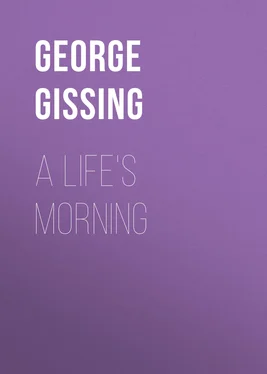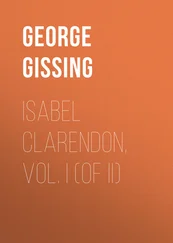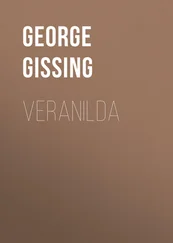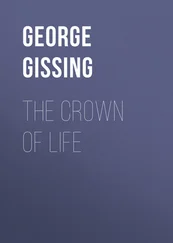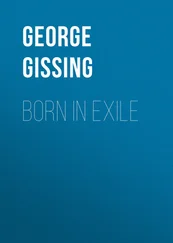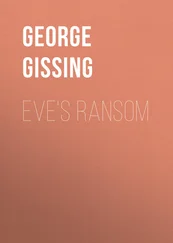George Gissing - A Life's Morning
Здесь есть возможность читать онлайн «George Gissing - A Life's Morning» — ознакомительный отрывок электронной книги совершенно бесплатно, а после прочтения отрывка купить полную версию. В некоторых случаях можно слушать аудио, скачать через торрент в формате fb2 и присутствует краткое содержание. Издательство: Иностранный паблик, Жанр: foreign_prose, literature_19, foreign_antique, на английском языке. Описание произведения, (предисловие) а так же отзывы посетителей доступны на портале библиотеки ЛибКат.
- Название:A Life's Morning
- Автор:
- Издательство:Иностранный паблик
- Жанр:
- Год:неизвестен
- ISBN:нет данных
- Рейтинг книги:3 / 5. Голосов: 1
-
Избранное:Добавить в избранное
- Отзывы:
-
Ваша оценка:
- 60
- 1
- 2
- 3
- 4
- 5
A Life's Morning: краткое содержание, описание и аннотация
Предлагаем к чтению аннотацию, описание, краткое содержание или предисловие (зависит от того, что написал сам автор книги «A Life's Morning»). Если вы не нашли необходимую информацию о книге — напишите в комментариях, мы постараемся отыскать её.
A Life's Morning — читать онлайн ознакомительный отрывок
Ниже представлен текст книги, разбитый по страницам. Система сохранения места последней прочитанной страницы, позволяет с удобством читать онлайн бесплатно книгу «A Life's Morning», без необходимости каждый раз заново искать на чём Вы остановились. Поставьте закладку, и сможете в любой момент перейти на страницу, на которой закончили чтение.
Интервал:
Закладка:
The dwelling was neither large nor handsome, but it stood in a fine garden and had an air of solid well-being. As soon as they had passed the gates, they were met by a middle-aged woman carrying a child of two years old, an infant of wonderfully hearty appearance. At the sight of its father it chuckled and crowed. Dagworthy took it from the woman's arms, and began a game which looked not a little dangerous; with surprising strength and skill, he tossed it up some feet into the air, caught it as it descended, tossed it up again. The child shrieked with delight, for all that the swift descent positively stopped its breath, and made a hiatus in the screaming.
'Theer, that's abaht enough, Mr. Richard,' said the woman, in broad dialect, when the child had gone up half a dozen times; she was nervous, and kept holding out her arms involuntarily. 'Ah doan't ovver much fancy that kind o' laakin. What's more, he's allus reight dahn fratchy after a turn o' that. See nah, he'll nivver want you to stop. Do a' done nah, Mr. Richard.'
'Here you are then; take him in, and tell them I want some tea; say I have friends with me.'
The child was carried away, roaring obstreperously, and Dagworthy, laughing at the vocal power displayed, led the way round to the back of the house. Here had been constructed elaborate kennels; several dogs were pacing in freedom about the clean yard, and many more were chained up. Much information was imparted to the visitors concerning the more notable animals; some had taken prizes at shows, others were warranted to do so, one or two had been purchased at fancy prices. Mr. Hood now and then put a question, as in duty bound to do; Emily restricted her speech to the absolutely necessary replies.
Dagworthy conducted them into the house. It appeared to be furnished in a solid, old-fashioned way, and the ornaments, though few, were such as might better have been dispensed with. Old Dagworthy had come to live here some five-and-twenty years previously, having before that occupied a small house in conjunction with his mill. He had been one of the 'worthies' of Dunfield, and in his time did a good deal of useful work for the town. Personally, he was anything but amiable, being devoid of education and refinement, and priding himself on his spirit of independence, which exhibited itself in mere boorishness. Though anything but miserly, he had, where his interests were concerned, an extraordinary cunning and pertinacity; he was universally regarded as one of the shrewdest men of business in that part of Yorkshire, and report credited him with any number of remarkable meannesses. It was popularly said that 'owd Dick Dagworthy' would shrink from no dirty trick to turn a sixpence, but was as likely as not to give it away as soon as he had got it. His son had doubtless advanced the character of the stock, and, putting aside the breeding of dogs, possessed many tastes of which the old man had no notion; none the less, he was credited with not a little of his father's spirit in business. In practical affairs he was shrewd and active; he never—as poor Hood might have testified—paid a man in his employ a penny more than there was need, and fell far short of the departed Dagworthy's generosity; to be at his mercy in a pecuniary transaction was to expect and to receive none. For all that, there was something in the man which hinted at qualities beneath the surface; a glance, a tone, now and then, which seemed on the point of revealing a hidden humanity.
When he chose, he could be courteous; he was so at present, as he requested Emily and her father to seat themselves in a large homely room which looked out upon the garden. The woman who had carried the child reappeared and poured out cups of tea. When she had left the room—
'I must ask you to excuse the roughness of my establishment, Miss Hood,' he said. 'I have to make shift for the resent with Mrs. Jenkins. She isn't as refined as she might e, but she's been with us here for more than twelve years, and I should be sorry to replace her with any other servant.'
Pieces of bread and butter of somewhat undue solidity were offered. Emily 'declined anything but the cup of tea. She was very ill at ease, though she succeeded in suppressing any manifestation of it; Dagworthy kept his gaze on her constantly.
'Now I know you didn't care very much about the dogs,' he said to her presently. 'I think I've got something here that will be rather more in your line.'
He brought from a corner of the room a large portfolio, set it upon a chair in front of Emily, and exposed its contents. These were a number of fine photographs of continental cathedrals and churches.
'I bought these when I took my run through France and Germany last year,' he explained. 'I've something of a turn for architecture, I believe; at all events, I know I like a fine building, and I like to find out all I can about it.'
He went through the collection, with remarks which proved that he had certainly attained a rudimentary knowledge of the subject, and that his appreciation was often keen when his technical understanding might be at fault.
'The worst of it is,' he said, at one point, with a modesty which was a new feature in his conversation, 'I can't pronounce the names properly. Now, how do you read that, Miss Hood? To be sure; I know it when I hear it. Have you ever been in France?'
The negative reply came.
'You'd like to see the old-fashioned streets in which some of these churches stand.'
As soon as it was possible to do so, Emily looked meaningly at her father, and he, just as anxious to be on his way homeward, rose for leave-taking. Dagworthy offered no opposition; he went with them to the gates, and shook hands with both, then stood gazing after them as they walked across the common.
'Well, I never knew young Dagworthy anything like that before,' said Mr. Hood, when they were at some distance from the gate. 'I couldn't believe it when he asked us to go into the house.'
'I'm afraid mother will be very uneasy,' was Emily's reply.
'Yes, my dear, I'm afraid she will; let's walk sharply. But he was really uncommonly pleasant; I shall think a good deal better of him than I have done.'
This was the only aspect of the afternoon's adventure which presented itself to Mr. Hood. Emily was divided between relief at having got away from that persistent gaze and apprehension of what might meet them on their arrival at home. The latter feeling was only too well justified. Mrs. Hood sat in the kitchen, the window darkened. When speech was at length elicited from her, it appeared that a headache to which she was subject had come on in its severest form. Emily was at once active with remedies, not that any of those that she urged were likely to avail themselves, but because she was well aware that the more solicitude she showed the sooner her mother would resume her ordinary state. Mrs. Hood begged to be left to herself; let them have their tea and leave her in the kitchen, she was best there, out of people's way; it would soon be bedtime, the evening was practically gone. In the course of half an hour she was at length prevailed upon to come into the sitting-room, and even to taste a cup of tea. At first she had paid no attention to the reasons alleged for the unpunctuality; little by little she began to ask questions on her own account, petulantly but with growing interest. Still, the headache was not laid aside, and all spent a very dolorous evening.
In the relation these things have their humorous side; Emily may be excused if she was slow to appreciate it. She knew very well that the crisis meant for her father several days of misery, and perhaps in her youthful energy she was disposed to make too little allowance for her mother, whose life had been so full of hardship, and who even now was suffering from cares and anxieties the worst of which her daughter was not allowed to perceive. After the girl's early departure to her bedroom the other two sat talking drearily; after one of her headaches Mrs. Hood always dwelt in conversation on the most wretched features of her life, with despairing forecast. Poor woman, there was little of a brighter kind to occupy her thoughts. Two occasions of grave anxiety were at present troubling her, and, though he spoke of them less, her husband in no less a degree. It had just been announced to them that at the ensuing Christmas their rent would be raised, and at the same time the tenant who had for years occupied the house which they owned in the town of Barnhill had given notice of departure. There was a certain grotesqueness in the fact of James Hood being a proprietor of real estate. Twice an attempt had been made to sell the house in question, but no purchaser could be found; the building was in poor repair, was constantly entailing expense to the landlord, and, in the event of its becoming unoccupied, would doubtless wait long for another tenant. This event had come about, or would in a couple of months, and the loss of that five-and-twenty pounds a year would make the difficulty of existence yet more desperate. Once more an attempt at sale must be made, in itself involving outlays which, however petty, could ill be borne; and to sell, even if it could be done, meant a serious loss of income.
Читать дальшеИнтервал:
Закладка:
Похожие книги на «A Life's Morning»
Представляем Вашему вниманию похожие книги на «A Life's Morning» списком для выбора. Мы отобрали схожую по названию и смыслу литературу в надежде предоставить читателям больше вариантов отыскать новые, интересные, ещё непрочитанные произведения.
Обсуждение, отзывы о книге «A Life's Morning» и просто собственные мнения читателей. Оставьте ваши комментарии, напишите, что Вы думаете о произведении, его смысле или главных героях. Укажите что конкретно понравилось, а что нет, и почему Вы так считаете.
